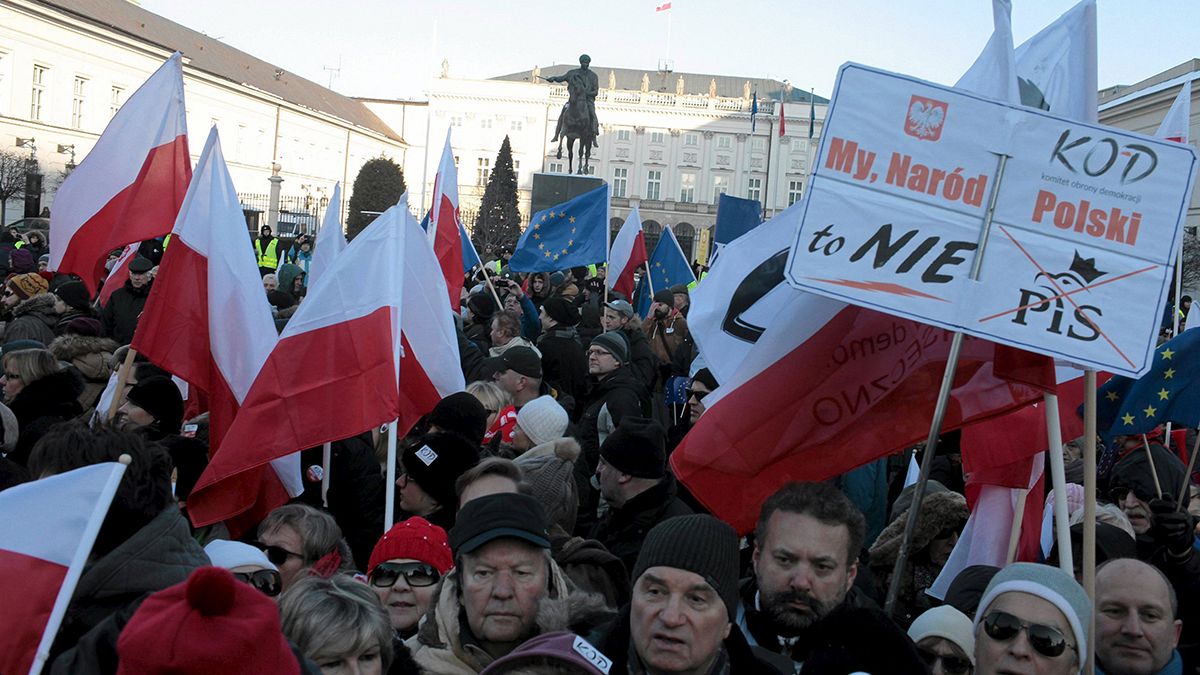Just three months on from elections, Poland finds itself in political turmoil. Demonstrations last Saturday were just the latest in a wave of action
Just three months on from elections, Poland finds itself in political turmoil.
Demonstrations last Saturday were just the latest in a wave of action since the nationalist, right-wing Law and Justice party took power in November.
Since then, the government’s been making moves to boost its control of the judiciary and media.
Moves that have caused divisions and raised alarm bells in the EU, which is probing whether Warsaw is undermining democratic principles.
Poland’s Prime Minister, Beata Szydło, was recently applauded by eurosceptics in Strasbourg, as she defended the contested changes.
Warsaw is hoping that the European Commission will put its investigation on ice. It could bring sanctions, a suspension of Poland’s voting rights.
“We have a conflict, a clear conflict with the European Commission, but the Polish government is open to dialogue,” said Marek Magierowski, spokesperson for President Andrzej Duda.
“The Polish government wants to discuss all these things, that seem to be controversial, that the European Commission apparently does not understand fully.”
Among the most contested measures introduced by the government is one that has paralysed the constitutional court.
It requires its 15 members to pass most of its rulings with two-thirds of votes rather than the previous simple majority.
“This is an entirely unreasonable way of interpreting the constitution to conclude that the constitution would allow for normal procedural law to completely paralyse this very important organ of constitutional control. Actually the only organ, that has power to control the constitutionality of laws,” said Maciej Kisilowski, Assistant Professor of Law and Public Management at Central European University.
Anger is also being stoked by a government plan to allow secret services and police fast access to internet and telecommunication data of citizens, without prior approval from a judge.
Critics claim the Law and Justice party is emulating Hungary’s prime minister Victor Orban is trying to impose its political agenda – by undermining democratic freedoms.
Euronews reporter Gabor Kovacs said: “More and more analysts are emphasising that there is a sort of Polish-Hungarian axis in Europe that would like to position itself against Brussels.
“It’s easy to characterise the essence of this – and a recent line from the Polish Foreign Minister might be a good example. He said that Poland doesn’t need the EU kind of multiculturalism that is only represented by cyclists and vegetarians who use renewable energy.”


